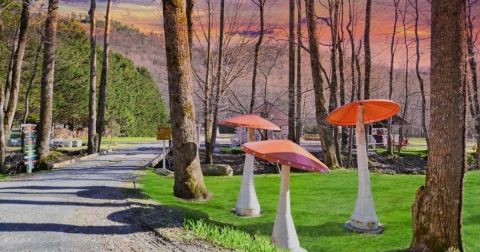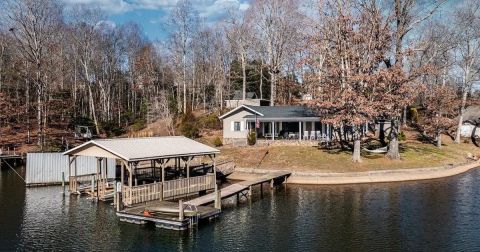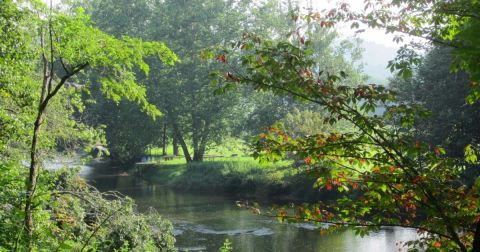This Might Be The Strangest North Carolina Legend Ever
There’s one mill village in Burlington where colorful, historic houses line the street. On a sunny afternoon, it looks like a cheery place, a well-preserved slice of the past. Yet, beyond the quaintness, exists a dark and strange legend.
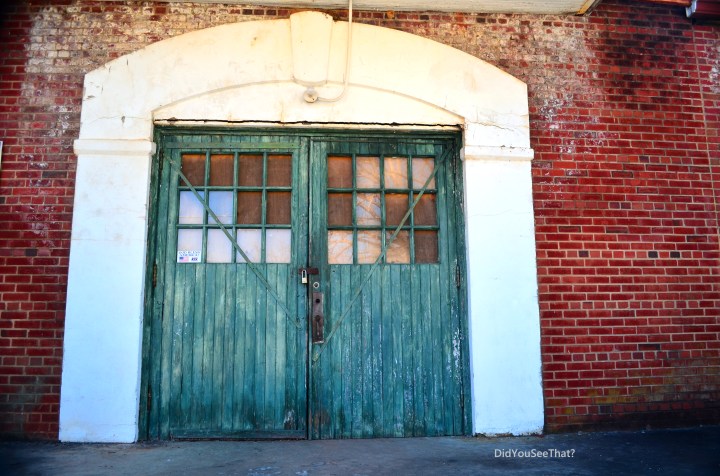
Following the Civil War, North Carolina's economy quickly turned to rely on textile and millwork to supply the industry with jobs. The Haw River around Burlington was especially suited for waterpower, and in 1880, James and William Holt built Glencoe Mill and Village.
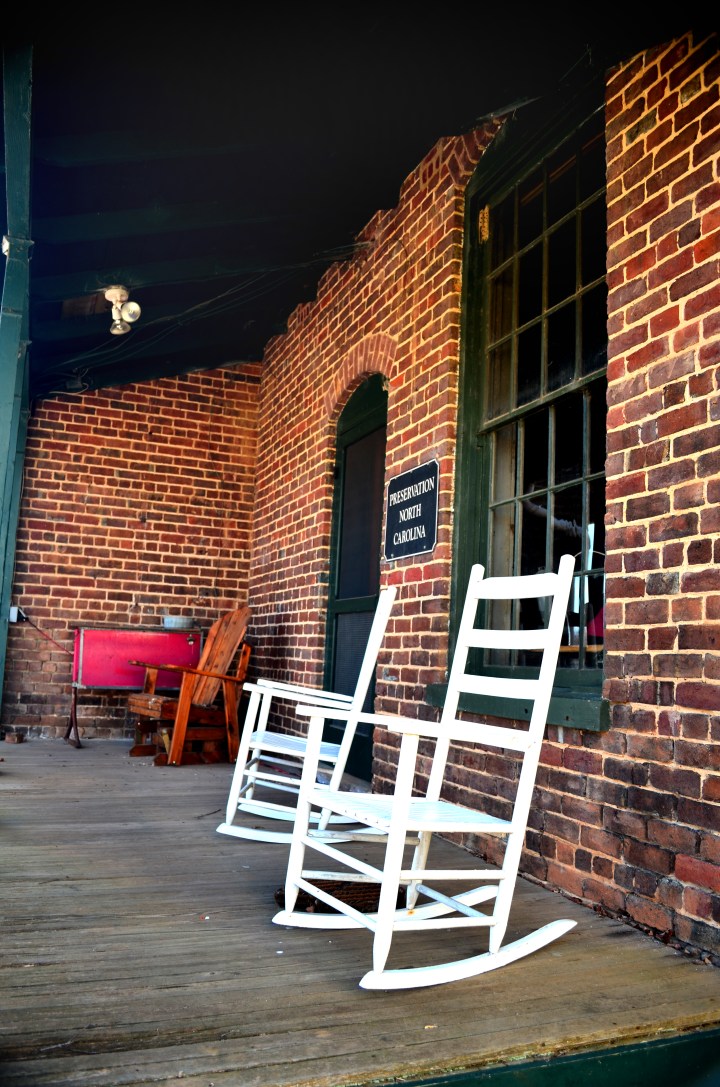
The mill supplied work for decades, with about half of the 500 workers living in the village. Glencoe Village consisted of nearly identical houses lining the streets, a school and company store. In the 1950s, as competition from other mills increased, eventually, Glencoe shut down in 1954, and most families left to seek other work, except one.
Advertisement
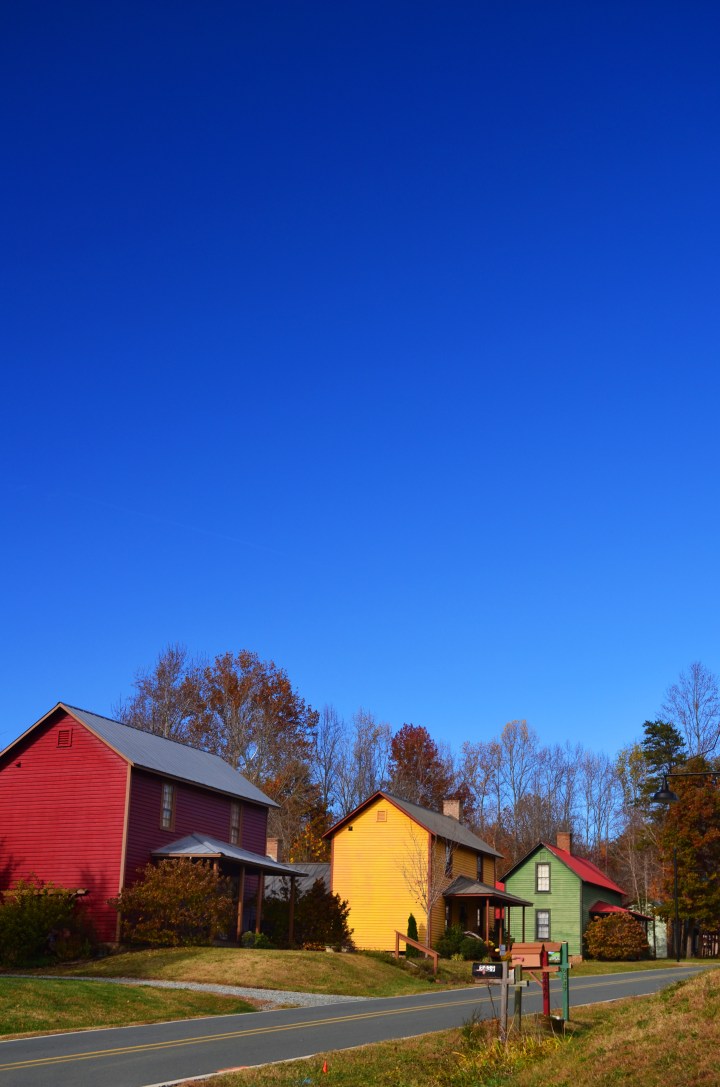
Like any place left in decay and ruin, teenagers and even bored college students would drive around the village at night. Shortly after the mill shut down, a rumor around Glencoe Village began to surface, and to this day, the nickname 'munchkinland' still very much applies to the village.
Stories circulated around a group of 'munchkins' who, when you drove through the village, would throw things at your car, run after your vehicle and shake it back and forth. When the munchkins were especially angry, they might even shoot at you. No one knew where the 'munchkins' came from, some saying they lived on a nearby island on the Haw River, others that they inhabited the abandoned houses. While not incredibly spooky, it was enough to create a lasting reputation and legend surrounding the village. Over time, the abandoned village became a late night destination, not only for seeing if the myth was true, but as a Lovers Lane of sorts, and eventually for darker things like drugs or prostitution. Not many people went near 'Munchkinland' or 'Munchkinville.' People thought maybe the legend was one parents told their children to keep them away, or maybe it was true, but in a much sadder way.
Stories circulated around a group of 'munchkins' who, when you drove through the village, would throw things at your car, run after your vehicle and shake it back and forth. When the munchkins were especially angry, they might even shoot at you. No one knew where the 'munchkins' came from, some saying they lived on a nearby island on the Haw River, others that they inhabited the abandoned houses. While not incredibly spooky, it was enough to create a lasting reputation and legend surrounding the village. Over time, the abandoned village became a late night destination, not only for seeing if the myth was true, but as a Lovers Lane of sorts, and eventually for darker things like drugs or prostitution. Not many people went near 'Munchkinland' or 'Munchkinville.' People thought maybe the legend was one parents told their children to keep them away, or maybe it was true, but in a much sadder way.
Advertisement
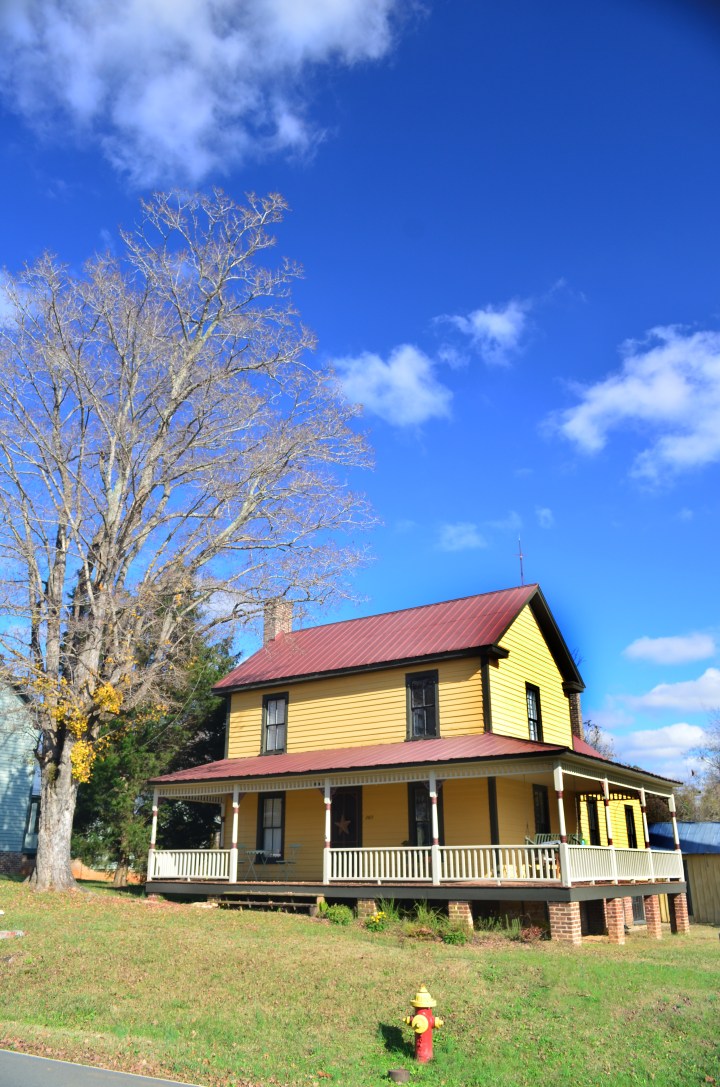
In 1999, people began moving to the village in order to inhabit and restore the historic homes. One day, resident Ann Hobgood was going about her daily business when there was a knock on the door. When she looked, it was a small man, standing about 4 feet 8 inches tall. Hobgood opened the door, and the stranger introduced himself as Garland "Pete" Massey.
Over the next weeks, Massey would frequently visit Hobgood, and there she learned the true story of 'munchkinville.'
Over the next weeks, Massey would frequently visit Hobgood, and there she learned the true story of 'munchkinville.'
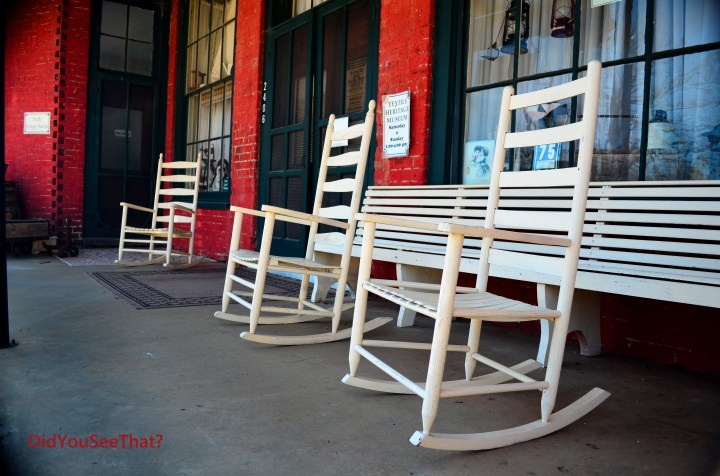
Pete was the fourth of five children belonging to Eugene and Addie Hall Massey, a family that worked and lived in the village on Back Street (now Hodges Road). The first two children were healthy and strong, but the other three were born with birth defects. Thelma, Pete and Donald had what is now known as 'brittle bone disease.' While they weren't born with dwarfism, the condition confined Thelma and Donald to wheelchairs, they couldn't walk and their legs and body were deformed. Pete was able to attend school, and Thelma and Donald were stuck at home. While their parents worked, Pete was instructed to put them on the front porch each day while the house was empty. The two children were forced to sit there day in and day out, waiting for Pete to get home.
Although the Masseys were a good, churchgoing family, it didn't stop people from making fun of what was different to them - the deformed Massey children. While sitting on the front porch, passersby and other village folk would call the children names and make fun of them, all while Thelma and Donald had to simply sit there. Eventually, Pete took matters into his own hands. Every day, he gave his siblings a handful of rocks and other objects to throw at people taunting them. The family lived in the village until the 1960s, and sadly, the story of the Masseys spawned the idea of 'munchkinland.' Although it is a strange legend, the backstory is much more heartbreaking.
Although the Masseys were a good, churchgoing family, it didn't stop people from making fun of what was different to them - the deformed Massey children. While sitting on the front porch, passersby and other village folk would call the children names and make fun of them, all while Thelma and Donald had to simply sit there. Eventually, Pete took matters into his own hands. Every day, he gave his siblings a handful of rocks and other objects to throw at people taunting them. The family lived in the village until the 1960s, and sadly, the story of the Masseys spawned the idea of 'munchkinland.' Although it is a strange legend, the backstory is much more heartbreaking.
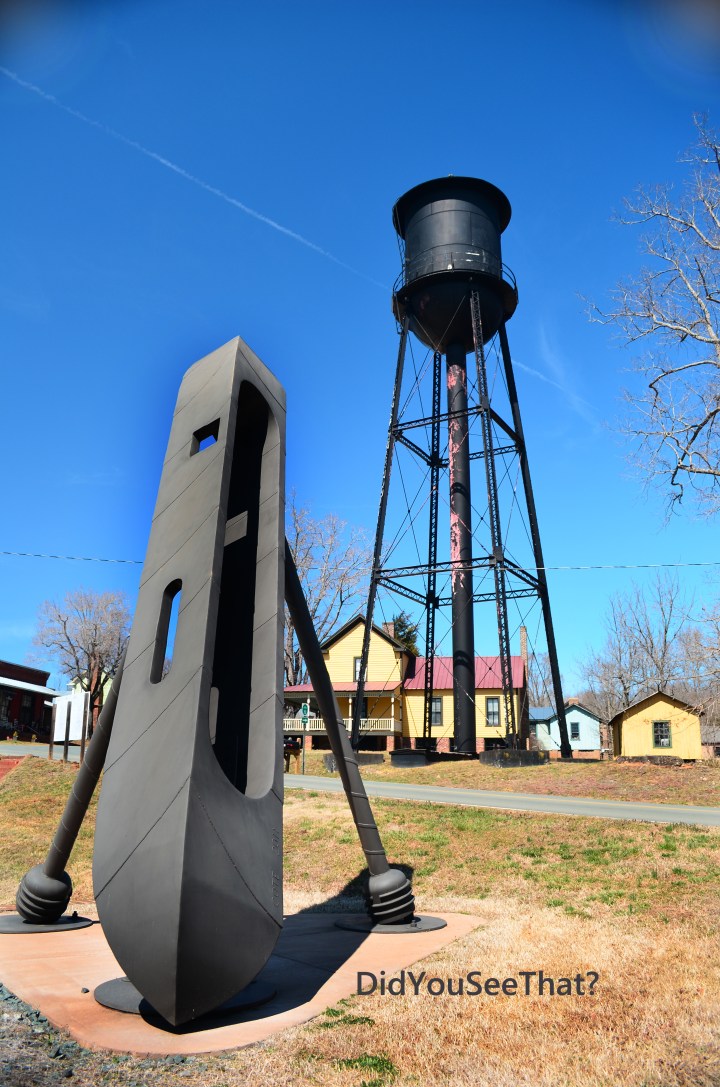
Pete Massey continued to visit the village and Hobgood, until his health declined and eventually he passed away at the age of 73 in 2008. Thelma died in 2010 at the age of 79 and Donnie in 2013 at 71. Today, the village is one of the best examples of a preserved textile mill in the south. Most of the houses have been reconstructed and are filled with families and retirees looking for something different. The mill, while still closed, is sometimes open for group tours. While the name 'munchkinland' still persists and somewhat defines the area, this is one North Carolina legend that - although it doesn't have a happy ending or source - has finally been solved.
Sources – Burlington Times-News and Did You See That?
Did you know the truth behind the legend of Munchkinland, are you familiar with the story or the area? Tell us your personal stories!
There’s plenty of abandoned mill towns in North Carolina, but this one is famously terrifying.
OnlyInYourState may earn compensation through affiliate links in this article. As an Amazon Associate, we earn from qualifying purchases.

